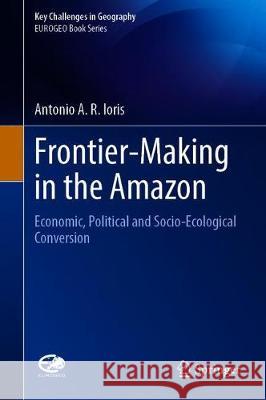Frontier Making in the Amazon: Economic, Political and Socioecological Conversion » książka
topmenu
Frontier Making in the Amazon: Economic, Political and Socioecological Conversion
ISBN-13: 9783030385231 / Angielski / Twarda / 2020 / 222 str.
Frontier Making in the Amazon: Economic, Political and Socioecological Conversion
ISBN-13: 9783030385231 / Angielski / Twarda / 2020 / 222 str.
cena 403,47
(netto: 384,26 VAT: 5%)
Najniższa cena z 30 dni: 385,52
(netto: 384,26 VAT: 5%)
Najniższa cena z 30 dni: 385,52
Termin realizacji zamówienia:
ok. 16-18 dni roboczych.
ok. 16-18 dni roboczych.
Darmowa dostawa!
Kategorie BISAC:
Wydawca:
Springer
Seria wydawnicza:
Język:
Angielski
ISBN-13:
9783030385231
Rok wydania:
2020
Wydanie:
2020
Numer serii:
000861656
Ilość stron:
222
Waga:
0.45 kg
Wymiary:
23.8 x 16.28 x 1.45
Oprawa:
Twarda
Wolumenów:
01











